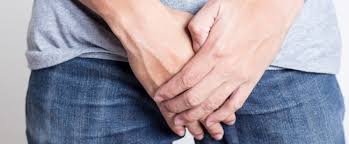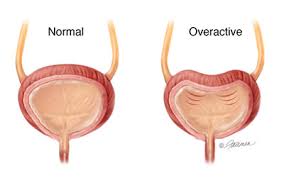In this review, we inform our patients about the causes of and treatment options for overactive bladder.
Overactive bladder: Synopsis
 Innumerable men and women contact our urologists in East Upper Side (Manhattan) to know about ‘overactive bladder: causes & treatments.’ We make it clear that overactive bladder refers to their sudden and uncontrollable urge to rush to the toilet to urinate. With the passage of time, an overactive bladder could cause urinary incontinence or the inability to hold urine.
Innumerable men and women contact our urologists in East Upper Side (Manhattan) to know about ‘overactive bladder: causes & treatments.’ We make it clear that overactive bladder refers to their sudden and uncontrollable urge to rush to the toilet to urinate. With the passage of time, an overactive bladder could cause urinary incontinence or the inability to hold urine.
It is alleged that nearly 33 million Americans suffer from the overactive bladder, but the actual figure could be higher. A good number of men and women with overactive bladder feel embarrassed to talk about their problem to a specialist. OAB could prevent individuals from leading a normal lifestyle. Many OAB patients keep themselves indoors as they feel that they may not be able to access a bathroom they step out.
However, those diagnosed with OAB can take relief in the fact that the condition is very much treatable.
Causes
The involuntary contractions of urinary bladder muscles even when the organ hardly contains any urine lead to the occurrence of OAB. So an individual feels the urgency to urinate whenever the muscles of urinary bladder start to contract involuntarily. There could be several reasons as to why the muscles contract automatically regardless of whether the bladder contains urine or is empty.
Some of the most common causes of OAB are:-
- Excessive intake of alcohol or caffeinated beverages
- Neurological disorders like multiple sclerosis, epilepsy, peripheral neuropathy, and Parkinson’s Disease
- Diuretics (medicines that stimulate urine production)
- Diabetes
- Bladder stones or bladder tumor
- UTIs (urinary tract infections)
- Aging (which impedes cognition, resulting in the bladder’s reduced ability to pick up brain signals)
- Constipation (which could hinder bladder outflow)
- BPH (an enlarged prostate could also adversely affect bladder outflow)
The exact cause (or causes) behind OAB remain unidentified.
Treatment options
 Our urologists usually suggest a judicious blend of multiple therapeutic procedures for remedying OAB.
Our urologists usually suggest a judicious blend of multiple therapeutic procedures for remedying OAB.
Medications
Many drugs help check involuntary muscular contractions and thereby alleviating urge incontinence. Some of the drugs that we prescribe to OAB patients include:-
- Toviaz
- Enablex
- Sanctura
- Vesicare
- Oxytrol
- Detrol
- Detral LA
The above drugs have side effects, including dry mouth and eyes, and constipation.
Behavioral therapies
We always tell patients to make a few lifestyle changes and opt for some behavioral therapies as primary measures. We advise the patient to:-
- Maintain a healthy weight
- Perform Kegel (pelvic floor muscle exercises) workouts
- Voiding at specific times in 24 hours
- Use absorbent pads
- Use a catheter frequently
- Practicing to control the urge of urination on a gradual basis
Injections
We at Fifth Avenue Urology administer Botox injections into the urinary bladder which checks involuntary contractions. Botox is extremely effective in suppressing acute urge incontinence. Electrically stimulating the muscles using noninvasive and invasive methods also offer relief from OAB.
Surgery
We recommend surgery as a last resort for patients whose medications, injections, and behavioral therapies don’t work. We carry out surgeries to enhance bladder capacity, and sometimes we excise the bladder and install a neobladder (as a replacement).
Since we’ve handled many OAB patients, we know that living with the condition can be quite challenging. Therefore, we encourage all our patients to keep in touch with us for seeking help and support. You can schedule an appointment with the best Urologists in NYC for any consultation needed.
We’re a competent and seasoned team of urologists at Fifth Avenue Urology, offering high-quality treatment for nearly all urological problems. For instance, we’re capable of treating urinary tract infections, erectile dysfunction, benign prostatic hyperplasia, and so on. We have an excellent track record of performing successful surgeries about the urological system.
Schedule an appointment today:
212-675-3186
———
References
